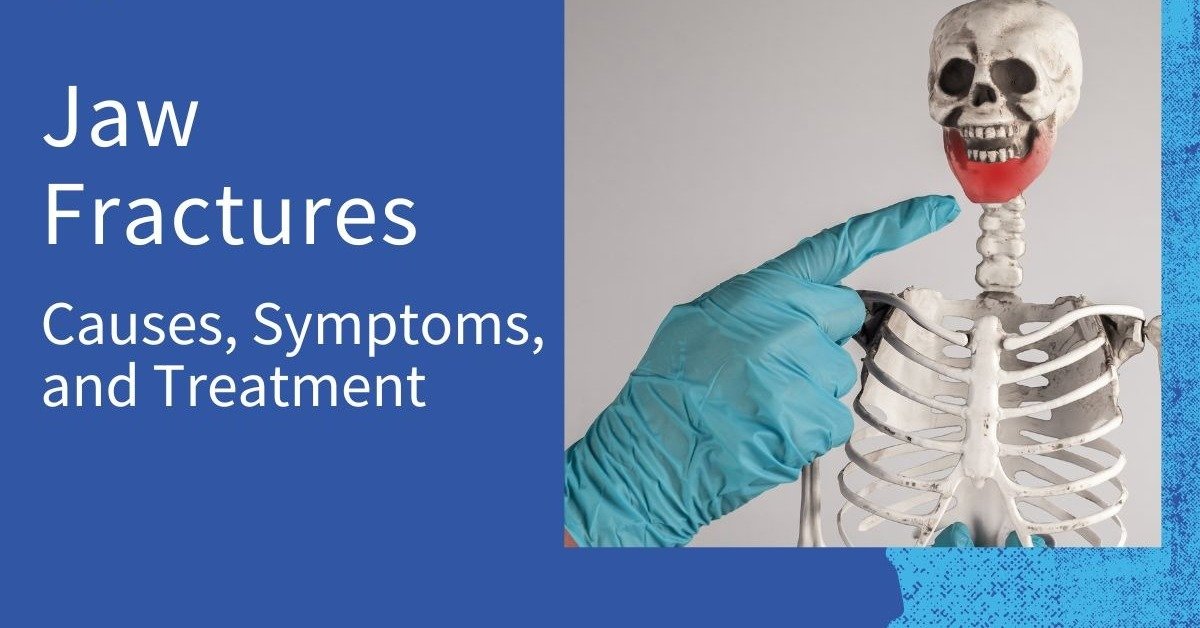Jaw Fracture
Experience Quick Recovery through Best Jaw Fracture Treatment in Indore
When a bone breaks in the mandible or maxilla of the jaw, it’s called a jaw fracture. This can happen in various locations, including the top of the lower jawbone, the condyle, and the jaw angle near the ears.

No matter where the fracture occurs, it’s considered a medical emergency. Dr. Priya Joshi, renowned as the Best Mandible doctor in Indore, Advises the urgency of seeking immediate medical attention for a fractured jawbone.
What is a dislocated jaw?
A dislocated jaw is when the lower part of your jaw moves out of place at one or both of the joints where your jaw bone connects to your skull. A jaw bone joint is a joint in your jaw that connects the jaw bone to your skull. This joint is called the TMJ.
Signs of a jaw fracture, according to the Experienced Mandible Doctor in Indore, may include:
- Bleeding in your mouth or nose.
- You have a bruise on your jaw or cheek.
- Swelling in your jaw or cheek
- Bruised the cheek or jaw.
- When you close your mouth, the teeth in your upper and lower jaws don’t line up, or your teeth are loose or damaged.
- Breathing is difficult for you.
- Your mouth cannot be opened or closed.
- Ear pain.
- Your face feels numb, especially the bottom lip.
- Talking or trying to chew food hurts.
There are many complications, as addressed by Knowledgeable Dentist Priya Joshi, that may involve:
- Cuts in the airways
- Bleeding,
- Difficulty breathing,
- Difficulty swallowing (temporary),
- Difficulty speaking (temporary),
- Jaw or facial infection,
- TMJ pain,
- Numbness in part of the jaw or face,
- Teeth alignment problems,
- swelling
What is the Treatment for a Broken Jaw?
The treatment you receive will vary based on the severity of the fracture, whether it’s minor or severe, involving multiple breaks in the lower jawbone. For the most effective care, consult with the Best Mandible Dentist in Indore.
If you have a mild fracture, your doctor may recommend that you remain on a fluid diet for 4 to 6 weeks.
Severe fracture treatment: your emergency care and cosmetic dentist may perform surgery. The surgeon may place metal plates or bars over the broken area of the jaw. These plates or bars keep the bone in place, allowing the bone to heal. The surgeon may also place wires or elastics in the jaw to help the bone heal.
Treatment for a fractured jaw varies depending on the type of fracture, its location on the jawbone, and its risk for complications. Here’s an overview of common approaches, with insights from Mandible Dentist Priya Joshi.
- Mobilization of the jaw
- Manual therapy
- Heat/ Ice
- Individualized home exercise
- Education on chewing habits
- Types of food
- And jaw position to avoid
What are the Treatments for Dislocated Jaws?
The first step in a Dislocated Jaw Procedure is manual repositioning. Our dentist inserts their thumbs into your mouth on the back of your lower jaw and holds the bottom of the jaw with their fingertips. They then manipulate your jaw back and forth until it pops back in place. This procedure may require pain medication or sedation.
Frequently Asked Questions
It might require weeks for your broken jaw to recover
- Take a liquid diet
- Drink fluids through a straw
- Use a dental rinse for brushing.
- Place ice packs on your jaw.
- Take nonsteroidal anti-inflammatory drugs (NSAIDs)
- If your jaw is wired shut, keep a wire cutter on hand in case you feel like vomiting or are choking on anything you should spit out.
- When you yawn or sneeze, place your fist or hand under your chin to keep your jaw still.
In most cases, yes. Jaw fractures typically heal well with minimal lasting effects on appearance, especially under the care of Dr. Priya Joshi, the Best Jaw Fracture dentist in Indore.
Brushing can be challenging if your jaw is wired closed. Your dentist may suggest using mouthwash or a specialized sponge brush to brush your teeth.
Place ice packs on the affected area and apply them for 15 to 20 minutes, as directed by your doctor. Warm compresses may be beneficial after the initial swelling has subsided.



